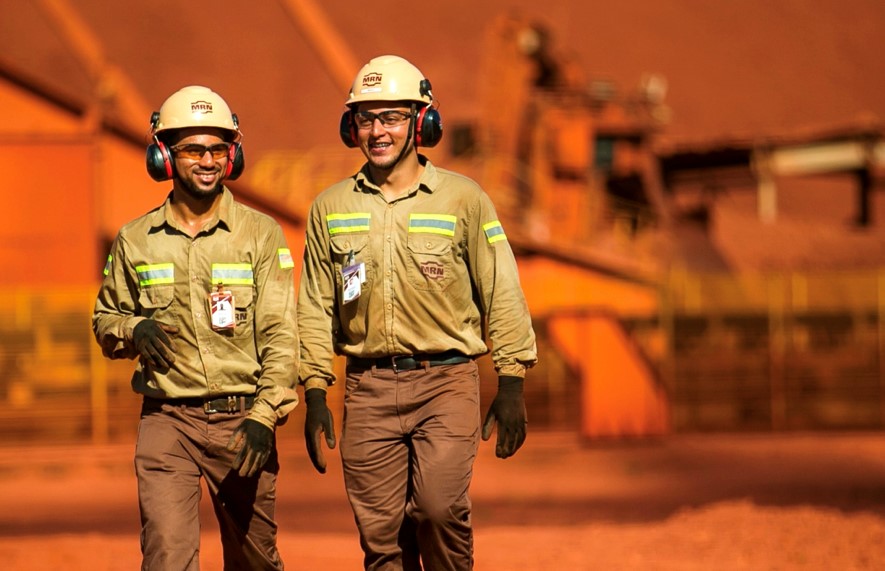

Suppose all currently operational mining sites in Brazil persist in their activities over the next few decades. In that case, it is projected that their emissions will amount to approximately 2.55 gigatonnes of carbon dioxide equivalent (CO2e), primarily attributed to the depletion of vegetation (0.87 Gt CO2eq) and soil (1.68 Gt CO2eq).

In a research article featured in Communications Earth & Environment, scientists from the Luiz de Queiroz College of Agriculture at the University of São Paulo made calculations. They deduced that this quantity of CO2e is equivalent to approximately 5 per cent of the global yearly greenhouse gas emissions from human activities.
Brazil possesses vast mineral reserves, however, many of which remain underutilized. These resources encompass iron ore, tin, copper, pyrochlore (a source of ferroniobium), bauxite, granite, manganese, asbestos, gold, precious gemstones, quartz, tantalum, and kaolin, also known as China clay.
Scientists have reported that Brazil possesses approximately 5.4 million hectares of legally active mines, a land area almost equivalent to the size of Croatia, a country situated in Central and Southeast Europe on the coast of the Adriatic Sea. These legal mines are distributed across the country, with a significant concentration in subtropical and tropical regions, where the soil organic carbon stocks are notably substantial, estimated at around 1.05 gigatons of carbon dioxide equivalent (Gt CO2e).
In response to this situation, a team led by Tiago Osório Ferreira has proposed a solution: reclamation of post-mined areas through the reconstruction of soils using materials such as mine tailings and various residues, including domestic and industrial waste. Their calculations indicate that these human-engineered soils, referred to as Technosols, can potentially mitigate as much as 60 per cent (1 Gt CO2e) of carbon dioxide emissions associated with soil.
Francisco Ruiz, the Lead Author of the research article, said, "When we thought about carbon stocks, the first step was to analyse emissions. Although most previous research focused on the impact of ore processing via the burning of fuel and electricity consumption, for example, open-cast mining in pits is the rule in Brazil, and the rest of the world, and the soil is the main terrestrial carbon storage ecosystem. When the soil is removed, organic matter and vegetation change, releasing CO2. We estimated potential soil and vegetation removal emissions at 2.55 GT CO2e."
Ruiz and Osório Ferreira propose that Technosols offer a promising avenue for reducing carbon emissions as they can serve as a reliable means of carbon storage. Additionally, these engineered soils can help reinstate crucial ecosystem services, including providing food and energy, preserving biodiversity, water quality, and nutrient cycling. When appropriately treated to eliminate harmful substances, Technosols can support native plants, crops, and forests while sequestering carbon as organic matter accumulates.
To test their hypothesis that the construction of Technosols can effectively mitigate CO2 emissions from open-cast mining activities, the researchers assessed carbon stocks in Brazilian mining sites using data from SIGMINE, an online platform maintained by the National Mining Agency (ANM).
Their findings revealed that soil organic stocks' recovery through Technosols is influenced by climatic conditions, with tropical Technosols demonstrating the highest potential for carbon stock recovery. This is primarily due to the substantial input of plant carbon and the vital capacity for carbon stabilization through interactions between minerals and organic matter.
Osório Ferreira said, “One of our most important findings is the amount of carbon obtained in Technosols. In some cases, it exceeds the total in natural soils. The studies conducted by Francisco show that it’s possible, in a very short time, to construct soils that perform even better than natural soils and help mitigate the adverse effects of climate change.”
The researchers emphasize the presence of potentially harmful elements like arsenic, mercury, cadmium, copper, and lead in certain types of mine waste, underscoring the need for caution in their utilization. Therefore, before transforming these waste materials into Tecnosols, it is crucial to implement remediation methods such as phytoremediation, involving the use of plants and soil microbes to mitigate contaminant levels and their adverse effects, as well as soil amendment, which includes the introduction of specific materials to enhance the physical and chemical characteristics of the soil.
To better understand sustainable bauxite mining practices, particularly in Brazil's context, we recommend exploring AL Circle's specialized report titled "Sustainability in the Global Aluminium Industry." This comprehensive report delves into the intricacies of sustainable mining methods for bauxite, shedding light on critical environmental and social considerations within the Brazilian mining sector. By consulting this industry-focused report, stakeholders can access valuable insights and knowledge about the responsible and eco-conscious approaches adopted within the bauxite mining industry, contributing to a more environmentally sustainable and socially responsible future.
Responses








